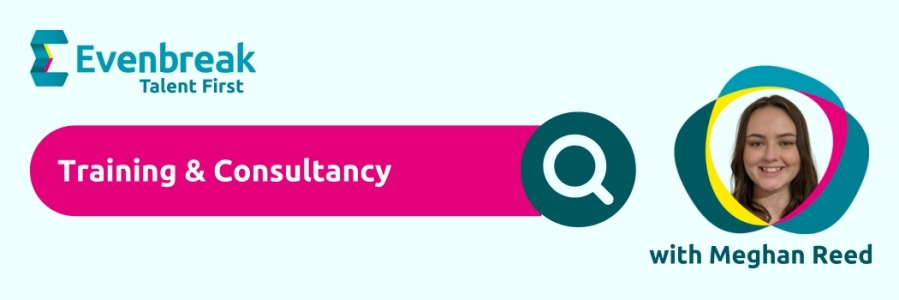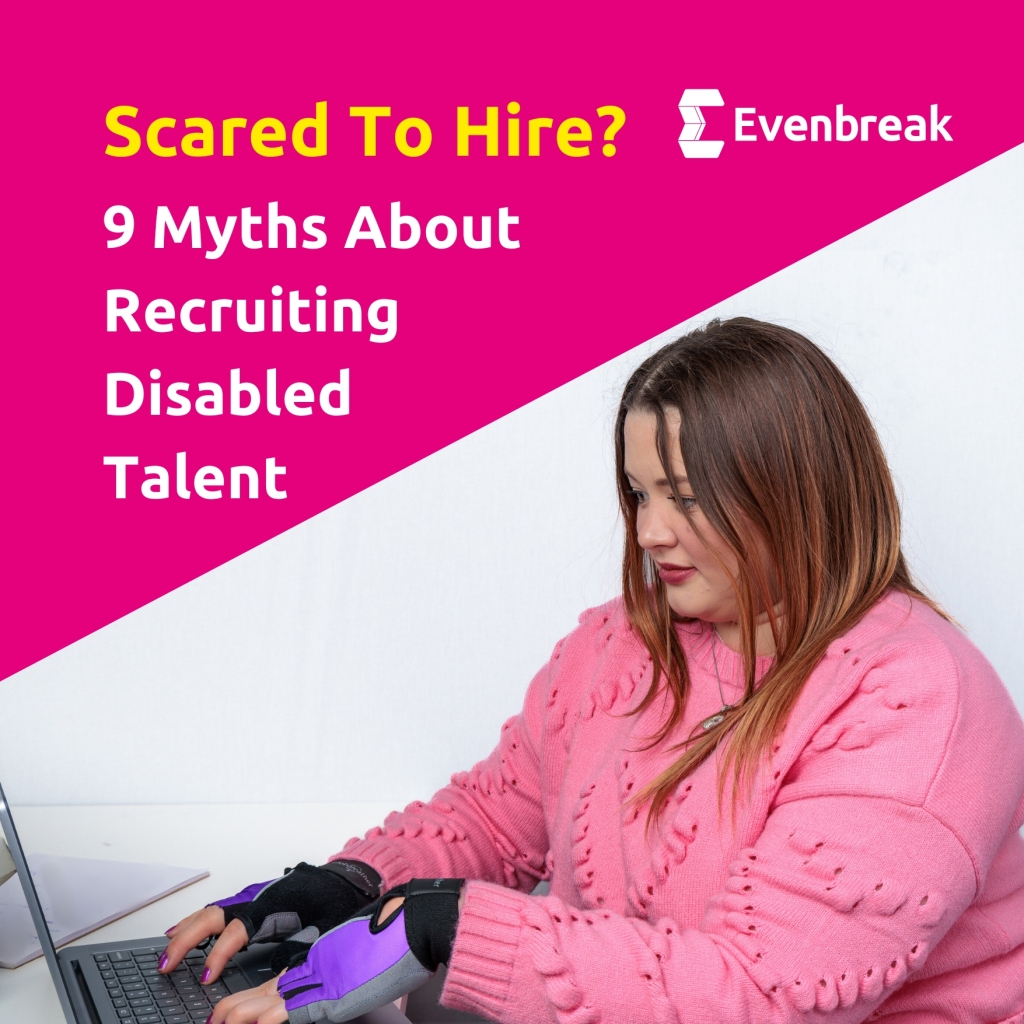
Want to find the right candidate for your role yet daunted about offering to the talented disabled candidate? We bust some common myths on this taboo topic and aim to empower you to make your company a market leader.
Myth 1: Having a disabled staff member will cost us more money.
Truth: If you value a disabled candidate’s skills, then the salary you offer them might be higher so that could cost a bit more. But otherwise, it is inaccurate to apply generally. Of course, reasonable adjustments must be made, if needed, but these do not necessarily need to be costly. For example, simply switching Microsoft Teams subtitles on for meetings can help a hearing-impaired colleague access information and feel included. As well as adjustments, Access to Work is a valuable resource to utilise, and Evenbreak can help support with internal training.
Myth 2: If they cannot upload a CV on application, then they cannot work.
Truth: A CV is a written summary of someone’s course of life and in the modern tech world, a Word doc or PDF is just one way this information can be represented and shared at initial application stage. At Evenbreak, we have done away with CVs at application and instead ask 4 to 5 role specific questions and give the opportunity for candidates to respond in their preferred format; video, written, or over the phone.
And, if a candidate cannot upload their answers, then maybe it is one of two issues:
- the website is inaccessible and needs reviewing (at Evenbreak we can help with this) or
- there is a technical issue with the website that needs investigating.
Plus, not all jobs are deskbound and require uploading info! For example* a doctor in Germany was using female Braille readers to do breast examinations for lumps as they had particularly sensitive hands and could detect smaller lumps much earlier than the average doctor could. These colleagues obtained rewarding work and patients’ outcomes were potentially improved by the most skilled candidates getting employed.
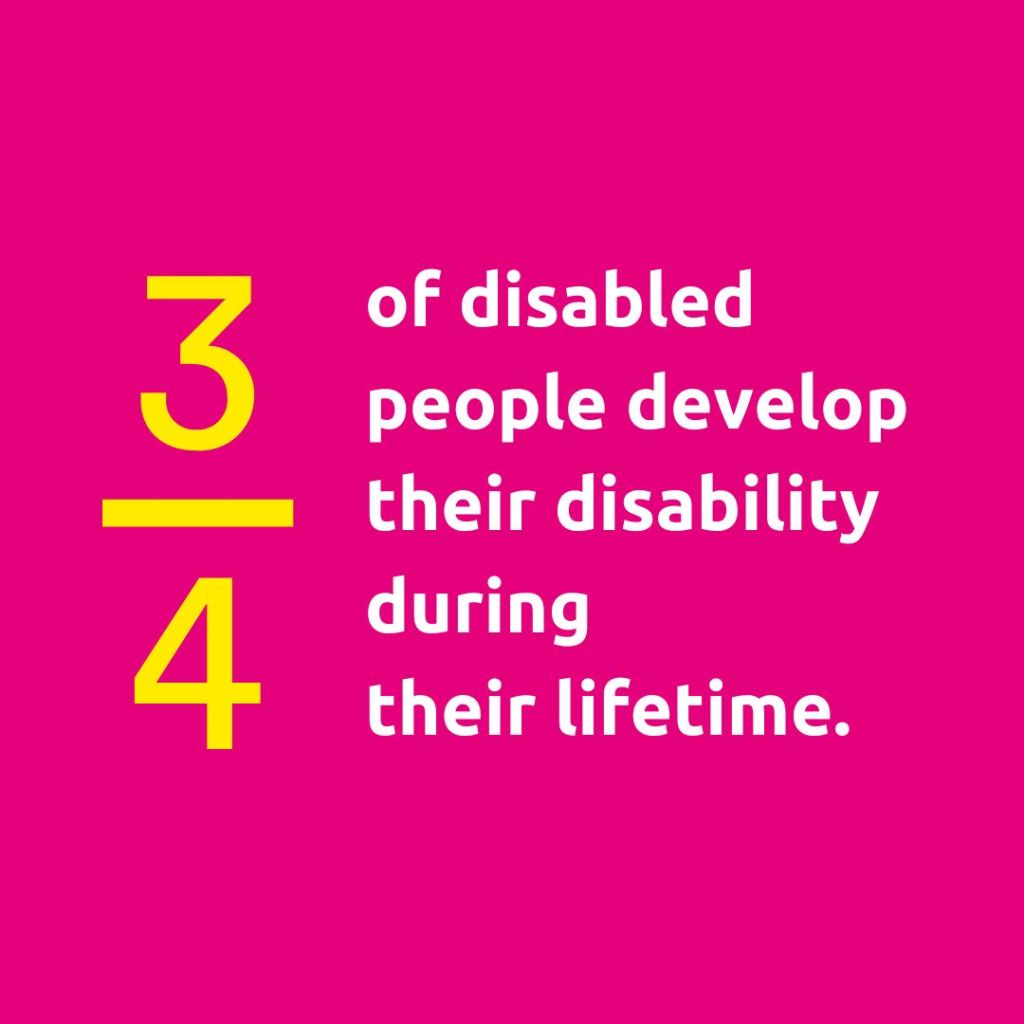
Myth 3: There are gaps in their CV so they must have been in prison.
Truth: On candidate’s application, did they tick the criminal record box? No. Then it is likely that they have these gaps for a different reason, such as:
- recently became disabled (three quarters of disabled people develop their disability during their life) and needed to take some time to adapt to their new circumstances
- caring for someone else
- maternity or paternity leave
- upskilling and taking a course
- made redundant as part of a wider company restructure
- taking that world tour that they have always wanted to do.
Some of these suggested reasons could affect anyone. If you think the applicant has got the desired skills and is worth shortlisting, then ask at the interview to elaborate on gaps. You might be surprised and even impressed!
Myth 4: Guaranteed interview scheme (GIS) is only used by chancers or people who could not read the question so should not be selected for interview.
Truth: GIS is intended to be a positive action measure to enhance access to interview for disabled applicants and who meet the minimum criteria for the role. Often disabled candidates will count themselves out of a role if they do not meet ALL the advertised criteria (even the desirable!) so by showing you are an inclusive employer and explaining the scheme can be the extra encouragement they need to apply.
By providing the reassurance that you will not be discriminating, you could be accessing a further 20% of job seekers.
[To learn more about how to operate this scheme successfully and upskill your staff, contact us at Evenbreak.]
Myth 5: Sharing interview questions in advance is cheating
Truth: If you provide interview questions in advance it means all candidates are on a level and have a chance to reflect on their experience, skills, and relevant examples. This can reduce interview stress and boost confidence. It helps candidates know that you are empathetic and invested in helping them succeed. It will make your organisation stand out.
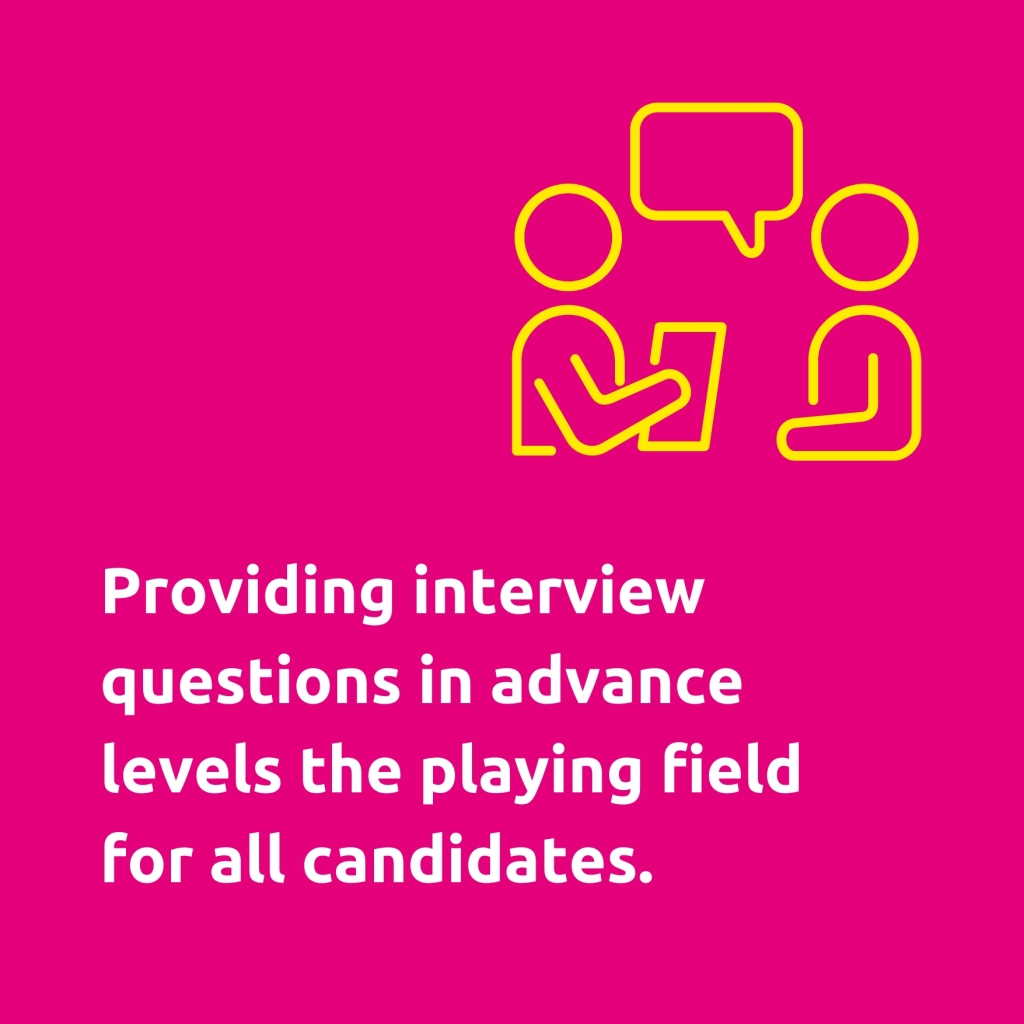
Myth 6: Candidates should be charismatic, confident, and talkative.
Truth: Employers may think that if a candidate is quiet, does not maintain eye contact or have a prepared answer for every question they cannot be good for the job. Fine if it is a customer facing position but pointless if they are applying for an admin or IT position for example. Struggling with interviews can be a common theme for neurodiverse people, and interviews are often not indicative of an individual’s performance in the role.
Myth 7: We can only accommodate certain disabilities in our office so cannot offer to everyone.
Truth: Unconscious assumptions could be at fault here. For example, not everyone who identifies as disabled is in a wheelchair and most blind people can use emails (if they choose to!). Rather than focusing on the possible can not’s, at interview discuss what the role involves and ask the candidate ‘how can you do that?’ and ‘what would they need to be successful?’ It could be as simple as using a screen reader or assisted technology. This discussion should help you and the candidate both know if this is going to be a good fit, and even what extra skills a candidate can bring.
Myth 8: A disabled candidate will be highly demanding and leave quickly so we will have invested for nothing.
Truth: A disabled employee is likely to stay longer in a role due to appreciating finding an inclusive employer who values their input. This is outlined in ‘A Dozen Brillian Reasons to Employ Disabled People’ by Jane Hatton**. If you value your team and can offer the right working environment, such as with salary, benefits, and culture, then any employee is more likely to stay, and you might find staff referrals increasing too.
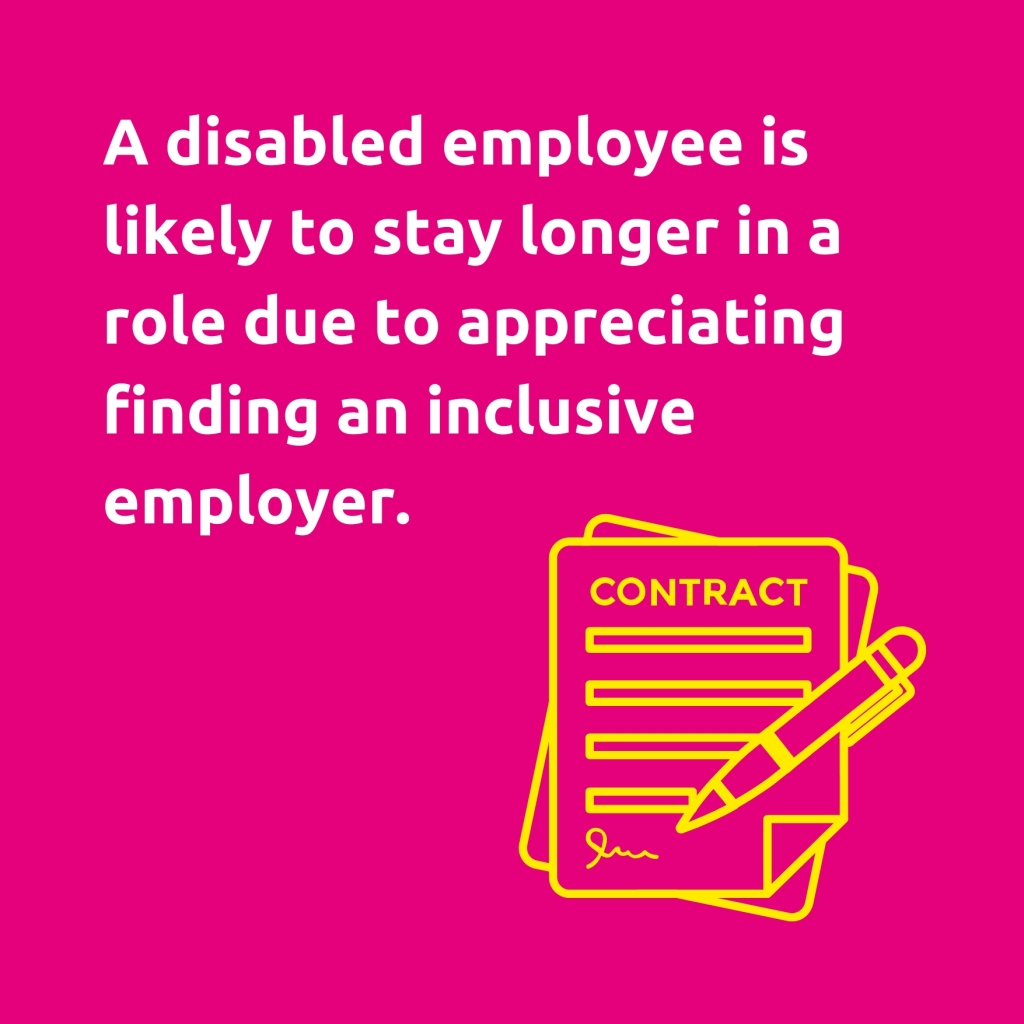
Myth 9: All autistic/blind/deaf/’insert disability here’ candidates need ‘x’ adjustment.
Truth: There is not one adjustment that will work for every candidate with a similar disability. Not all deaf candidates use BSL and not all blind candidates read braille. Adjustments are individual to the candidate. Do not be afraid. Discuss with the candidate and you might discover you already have that tech resource for the dyslexic candidate who can dictate via Google software, and/or it is easy enough to assign them a corner desk so they can work uninterrupted.
There are 5 million disabled people in work*** and potentially more who would like to be. Tap into that talent pool and begin your inclusive journey by offering the job to the person who can best fulfil it.
To learn more about how Evenbreak can help you with your inclusive recruitment and accessible hiring process, please get in contact. And if you would like specific internal training and consultancy, such as helping employees to thrive in the workplace, we can help with that too.
Anna Masefield, Account Manager

Information sources:
- *Cancer screening example https://www.bbc.com/news/magazine-31552562
- **The book ‘A Dozen Brillian Reasons to Employ Disabled People’ by Jane
- ***Disability facts and figures https://www.scope.org.uk/media/disability-facts-figures/
